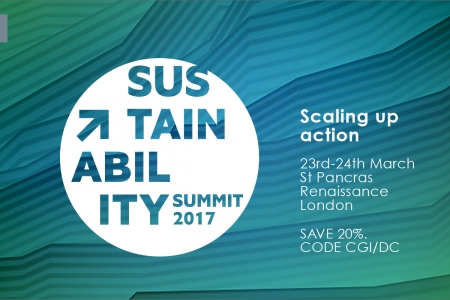For anyone still unclear about the full impact of the new world order, a glimpse of the future was offered at The Economist’s Sustainability Summit last month.
Myron Ebell, who is leading the transition of the US’s Environmental Protection Agency (EPA) under President Trump, told the conference via video link that addressing climate change could be left to future generations.
The high costs of adopting more sustainable practices were immediate and to our generation, he said, while the benefits were “entirely speculative”. “People today can’t predict and shouldn’t be controlling the future,” he added, unaware of the incredulity he had inspired among delegates in the room.
While Mr. Ebell was alone in dismissing the urgency of addressing climate change, he was not the only speaker to suggest that sustainability efforts are not necessarily everyone’s top priority. For many of the business leaders involved in the summit, cost, risk and reward are still the main drivers of decision making.
The bottom line
Herein lies the conflict that the summit sought to address: businesses are not philanthropic organizations. Many of the Sustainable Development Goals, such as gender equality (5) and climate action (13), are perceived as having limited direct relevance to businesses.
As one delegate pointed out, creating jobs and improving livelihoods (SDG 8) may be an admirable goal, but it is not the basis of a business. Instead, corporate sustainability is about efficiency and image.
During one of the sessions, Paul Stein, of Rolls Royce, admitted that the company’s R&D investment had been largely devoted to improving environmental performance because of consumer demand – rather than meeting global development targets. This underscores the power of public opinion to shape business interests.
A wedding cake economy
At the same time, it’s clear that achieving sustainability targets will only be possible by engaging the private sector.
As Johan Rockström, Chair of the WLE Steering Committee, pointed out, the “Mickey Mouse economy”, in which profit eclipses people and planet, is no longer working. Somehow, we must shift to more of a “wedding cake” model, in which the economy sits within the concentric circles of broader development across society and the environment.
From Mickey Mouse to wedding cake. I love @jrockstrom irreverent approach to our accepted norms #econsustainability pic.twitter.com/UVnTDXikGr
— Kevin Moss (@KevinIMoss) March 23, 2017
Events like The Economist’s Sustainability Summit offer an opportunity for business leaders to consider their activities within the context of a wider economic and planetary ecosystem.
Scientists and other sustainability professionals can play an important role in promoting the fact that environmental risks are also business risks and that such risks can best be addressed when working across sectors and scales.
For example, Jeremy Oppenheim, of the Business and Sustainable Development Commission, highlighted how the gains that can be achieved via sustainability are much bigger if companies join forces and collectively pursue sustainability challenges.
Green incentives
So, while businesses still appear to be considering the case for sustainability mostly in terms of profitability, productivity and consumer demand, are there ways to incentivize business leaders to go green? Yes, said several summit delegates:
According to Mark Wilson, CEO of Aviva, the most effective way to incentivize businesses to go green is to make it competitive. “Benchmarks by themselves are not enough,” he said. “Turn it into league tables.”
Similarly, Aon’s Greg Lowe made a direct appeal for more dialogue between professionals working in sustainability and those in risk management to allow investors and businesses to better manage risk in the longer term.
And for Usha Rao-Monari, CEO of Global Water Development Partners, investors should be challenging companies on their access to water to highlight the importance of conserving basic resources in the everyday running of companies. “If you don’t have water, you don’t have power,” she said. “If you don’t have water, you don’t have resources.”
Where do we go from here?
So if we are to transition to a dialogue of shared risks and shared development – spanning the gap between the development and the private sectors – perhaps development professionals and scientists have to begin by acknowledging the ideas for incentives that the private sector is putting forward.
By offering pragmatic solutions that contribute to the bottom line, rewarding best practice and exposing poor practice, the development community can start to inspire change.
If the SDGs are the “road map for humanity,” as Dr. Rockström suggested, then at least for now, we must ensure it is signposted in a language that businesses understand.



